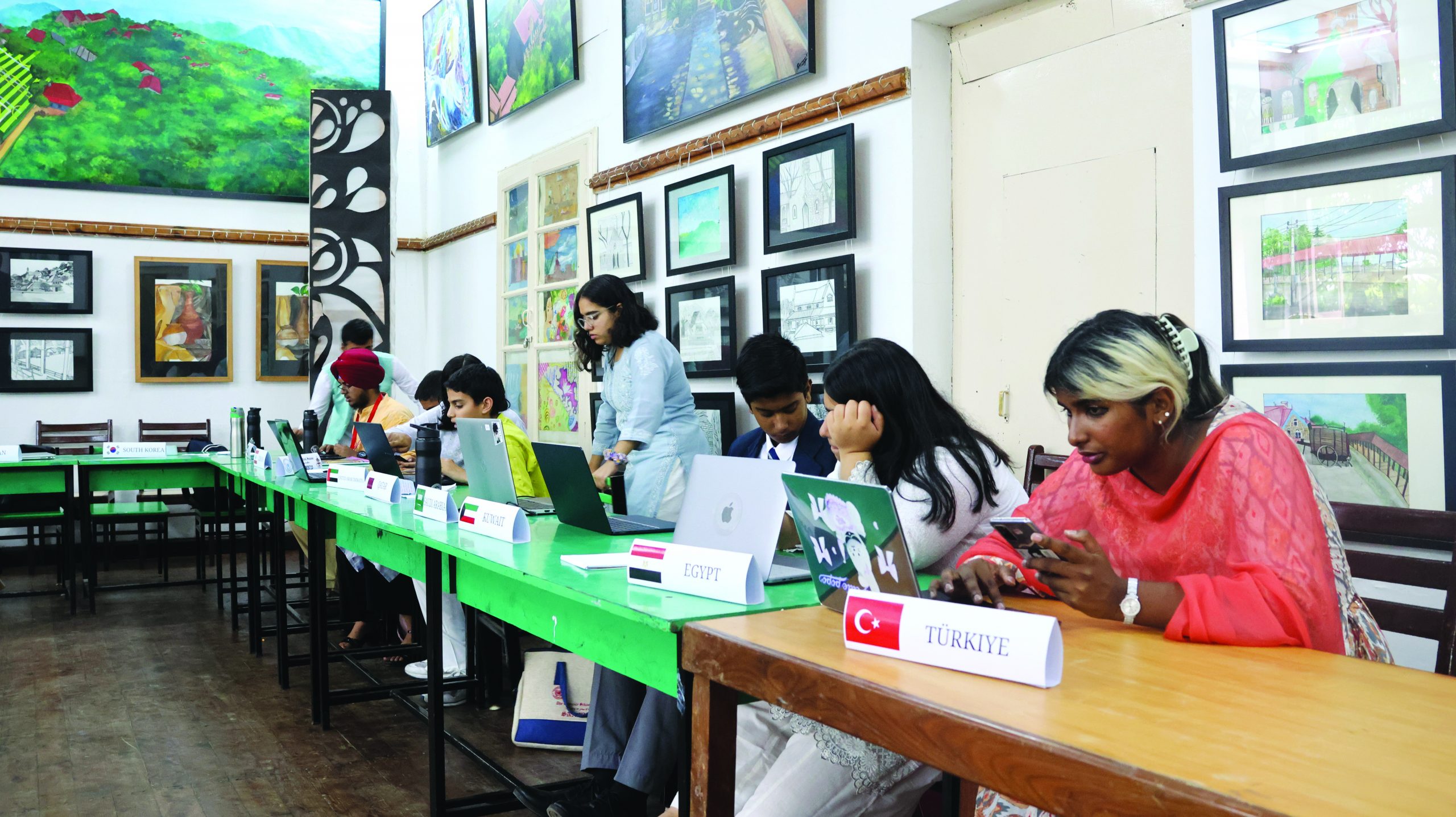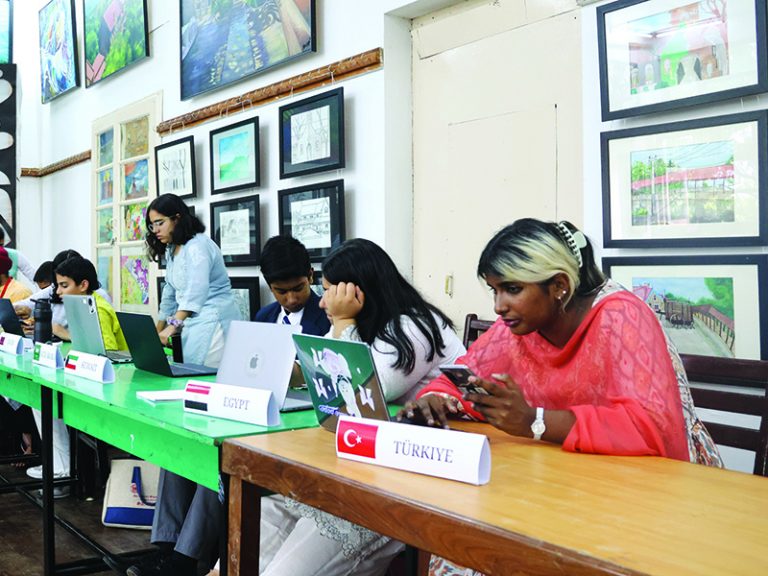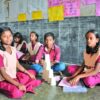Himachal Pradesh: Good show in adversity
Autar Nehru (Delhi)

SNAMUN 2023 snapshot: boarding schools comeback
Despite news of flash floods triggering landslides, washing away roads, bringing down buildings and flooding Delhi after 45 years because of 72 hours of incessant rainfall in northern India’s Himachal Pradesh and adjacent regions in July, the 6th edition of SNAMUN ’23 was successfully staged at The Lawrence School, Sanawar from July 27-29. Its sub-text is a story of resilience and rising popularity of boarding schools in India, at a time when in the UK — the mother country of boarding schools — they seem to be losing their shine (see educationworld.in/united-kingdom-boarding-schools-losing-shine).
The Model United Nations (MUN) programme, a popular co-curricular activity in schools throughout the world, is a big draw for schools as students groups representing countries discuss international issues and learn the skills of debate, diplomacy, negotiation and draft resolutions.
An annual fixture at The Lawrence School, Sanawar (TLSS, estb.1847), India’s top-ranked vintage co-ed boarding school in the latest EducationWorld India School Rankings 2022-23, the Sanawar MUN or SNAMUN ’23 now in its sixth year, was threatened by inclement weather. But the host school’s students-run secretariat pulled out all stops to ensure full-house participation. “We returned to school on July 20 after the break, and mailed videos of blocked roads opened for traffic and shared them with participating schools and delegates conveying the message that it was quite convenient to travel to Sanawar,” says Aditya Das, a class XII student and secretary-general of SNAMUN ’23.
As a result, 100 student delegates and teacher coordinators from 11 boarding/day-cum boarding schools across the country including Army Public School, Dagshai (HP), KK Blossoms School, Solan, Mayo Boys College, Ajmer, Modern School, Barakhamba, Delhi, Pinegrove, Solan, St. Kabir Public School, Chandigarh, Rajkumar College, Rajkot, Yadavindra Public School, Patiala, and Mussoorie International School made their way to the host school in Sanawar to discuss ‘Peace, Justice and Sustainability’ at SNAMUN ’23.
The three-day event also brought back bad memories of the Covid-19 pandemic, which had posed a threat to all boarding schools as parents preferred to keep children at home or in neighbouring day schools. However, after the end of the pandemic, boarding schools — especially upscale boarding schools in hill stations and Himalayan foothills, which offer clean air and healthy lifestyles at a time when India’s chaotic cities are setting world records for measurable environment pollution, 14 of the world’s 20 most polluted cities are in India according to WHO (World Health Organisation) — are making a comeback in middle class consciousness. SNAMUN ’23 was a success despite the rain gods having showered excessive bounty on TLSS.
“Over the course of three days, we discovered exceptional talent from participating schools. Because of inclement weather, the number of participant schools was not on a par with previous years. But the consensus was that our best schools are shaping a next generation ready to drive progress and make our shared planet a better, more harmonious place for everyone,” says Himmat Singh Dhillon, the highly experienced headmaster of TLSS, who has served in leadership positions in schools in Indonesia and the UAE prior to taking charge at TLSS in 2020.
Furthermore, it was agreed that India’s boarding schools have a good future despite left academics and media pundits routinely pillorying them for “elitism”. Presciently, Sumer Singh, former headmaster of Daly College and currently an independent education consultant and incumbent president of the Boarding Schools Association of India, had told EducationWorld way back in 2018: “Residential schools are becoming popular once again. Within the country’s middle class, there’s emerging awareness that our rapidly deteriorating cities experiencing heavy pollution, perpetual traffic jams which require day school children to endure long commutes, and shrinking play spaces, are robbing them of their right to an enjoyable and fulfilling childhood. In particular, girls boarding schools which offer high quality education in safe and secure environments, are experiencing a resurgence as crimes against women and girl children are rising unchecked in the country’s chaotic cities. Moreover, boarding schools which draw students from all castes and communities appeal to liberal and educated parents because they tend to be secular and progressive institutions offering lifelong friendships and networking opportunities for children.”
This trend is confirmed by Dhillon. “Compared to boarding schools in the UK and US, India’s are very affordable. Moreover, they have embraced contemporary digital technologies and introduced new pedagogies to the extent that they are on a par with the best residential schools worldwide. We have a bright future,” he says.
The success of SNAMUN ’23 is admissible evidence.
















Add comment